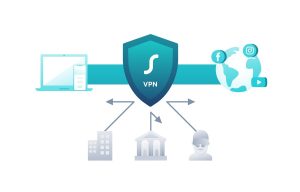
In today’s interconnected world, maintaining online privacy is more crucial than ever. With increasing concerns over government surveillance, protecting your digital footprint requires a proactive approach. Fortunately, with the right Internet privacy tips, you can secure your online activities and safeguard your personal information from prying eyes.
Understanding the Need for Internet Privacy Tips
The digital age has opened avenues for myriad conveniences, but it also has its downsides. Our personal data is constantly at risk of being monitored. As technology evolves, so does government surveillance. Therefore, knowing how to protect your online behavior and understanding government surveillance protection strategies is essential for maintaining your digital freedom.
Key Internet Privacy Tips for a Safer Browsing Experience
Achieving complete privacy online may seem daunting. However, by following these straightforward Internet privacy tips, you can regain control over your online interactions:
1. Use a Virtual Private Network (VPN)
A VPN is central to any digital privacy strategy. It encrypts your internet connection, making it difficult for third parties, including the government, to track your online activities. By concealing your IP address, you shield internet privacy and enhance your secure online activity.
Many VPN services offer additional security features, such as a kill switch, DNS leak protection, and multiple server locations. Choosing a reliable VPN provider is crucial, so always opt for a service with a no-logs policy to ensure your data isn’t stored.
2. Prioritize Secure Web Browsing
Your web browser is your gateway to the internet. Thus, securing it is imperative. Switch to privacy-focused browsers such as Brave or Firefox, which offer robust protection features. Additionally, configure your browser to block tracking cookies and scripts.
Installing browser extensions like uBlock Origin or Privacy Badger further enhances your security. These extensions prevent unnecessary data collection, offering protection for your online behavior.
3. Enable End-to-End Encrypted Messaging
Standard messaging apps might not provide adequate security if privacy is a concern. Opt for secure messaging services like Signal or WhatsApp, which offer end-to-end encryption. This means that only you and the recipient can read the messages, reducing the risk of government surveillance.
Moreover, regularly update these apps to gain access to the latest security features and bug fixes, ensuring ongoing government surveillance protection.
4. Strengthen Authentication Methods
Weak passwords are quick entry points for unauthorized access. Always use strong, unique passwords for your online accounts. Tools like password managers can help generate and store complex passwords securely.
Additionally, enable two-factor authentication (2FA) wherever possible. This additional layer of security requires confirmation of your identity through another means, such as a text message or authentication app. As a result, it offers enhanced protection for your online behavior.
5. Regularly Update Software and Devices
Software vulnerabilities are often exploited to breach systems. Therefore, regularly updating your software and devices is critical. These updates often come with security patches that fix vulnerabilities, ensuring ongoing secure online activity.
Automation can simplify this task. Enable automatic updates on your devices whenever possible. This proactive approach helps safeguard your data from unattended threats.
6. Be Cautious with Public Wi-Fi
Public Wi-Fi networks, though convenient, are often breeding grounds for cyber threats. Because these networks usually lack robust security measures, they can expose your data to hackers. Avoid accessing sensitive information or making online transactions on public Wi-Fi. For improved security, always use a VPN when connecting to these networks. This ensures added protection wherever you access the internet.
Understanding the Impacts of Government Surveillance
Before delving into ways to shield yourself, it’s crucial to understand why government surveillance protection is necessary. Governments often justify surveillance as a means to maintain national security. However, it can infringe on personal privacy rights. For many individuals, this constant monitoring feels invasive, underscoring the need for effective Internet privacy tips.
Moreover, an increasing number of governments worldwide have the capability to monitor their citizens’ internet activities. This includes accessing browsing histories, emails, and even location data. Therefore, proactive measures are imperative to safeguard your personal freedoms.
7. Limit Personal Information Shared Online
One of the simplest yet most effective Internet privacy tips is to limit the personal information you share online. Always be cautious about the details you provide on social media platforms. Regularly review privacy settings to restrict who can access your information. Sometimes, even innocuous personal data can compromise your privacy.
8. Utilize Secure Email Services
Email communication is a significant area of concern when it comes to privacy. Standard email services may not offer robust encryption, leaving your messages vulnerable to interception. Switching to encrypted email providers such as ProtonMail or Tutanota enhances secure online activity.
These services offer end-to-end encryption, ensuring your emails remain private and inaccessible to unauthorized parties. Besides, they also safeguard against email tracking, providing comprehensive government surveillance protection.
9. Regular Audits and Maintenance
Staying vigilant is essential to maintaining online privacy. Regularly evaluate your current security setup, including software, devices, and online services. By doing so, you can identify potential vulnerabilities and rectify them promptly.
Additionally, conducting security audits ensures that no unauthorized personnel have accessed your accounts, ensuring ongoing protection and peace of mind.
10. Advocate for Privacy Rights
Advocacy plays a pivotal role in promoting online privacy law reforms. Support organizations dedicated to maintaining digital privacy rights. Staying informed about changes in privacy laws and regulations helps you adapt your strategies accordingly.
Engaging in community awareness initiatives can inspire broader support for policies that protect personal privacy. As more people advocate for rights, there’s potential for impactful change.
Conclusion: Embrace Comprehensive Internet Privacy Tips
Navigating the digital landscape requires a keen understanding of the myriad threats that come with it. With these comprehensive Internet privacy tips, you can proactively safeguard your online presence, ensuring you remain outside the surveillance scope. By adopting these strategies, you’re taking a significant step toward a safer, more private online experience. Always remember, in an era where government surveillance is prevalent, protecting yourself isn’t just recommended—it’s essential.



